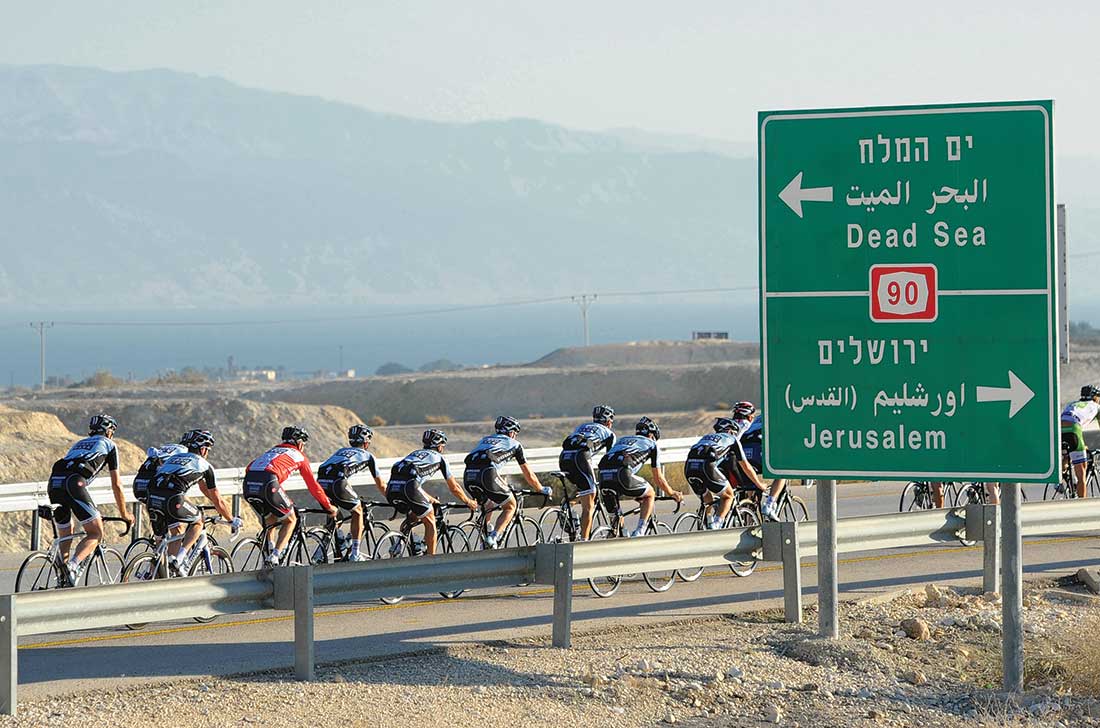Published May 1, 2018 11:00AM
If you buy through our links, we may earn an affiliate commission. This supports our mission to get more people active and outside.Learn about Outside Online's affiliate link policy
The road to Jerusalem: How the Giro ended up in Israel
Giro d’Italia organizers have a vision to unite two holy cities, Jerusalem and Rome, in the name of sport. Can politics be set aside?

The 2018 Giro is not the first time pro cycling has come to Israel. The country hosted Team Saxo Bank's training camp in 2012. Photo: ©Tim De Waele | Getty Images
Want to watch the Giro d’Italia? Stream all the stages on Fubo.tv for a special first-month introductory rate of $19.99. Subscribe now >>